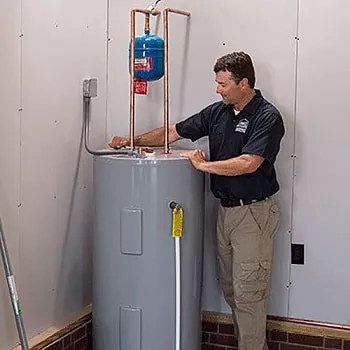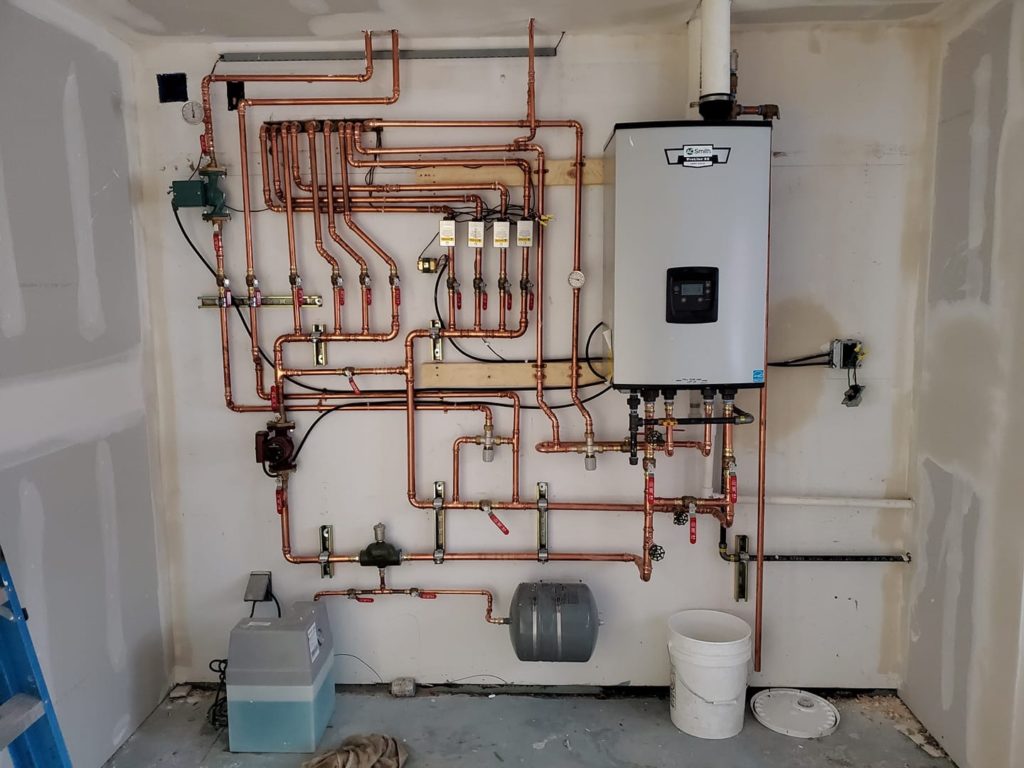Top-Rated Plumber Denton Offering Quality Plumbing Services You Can Trust
Top-Rated Plumber Denton Offering Quality Plumbing Services You Can Trust
Blog Article
Complete Overview to Water HeaterInstallment and Substitute
Comprehending the intricacies of hot water heater installation and substitute is critical for property owners looking for to make certain efficiency and reliability in their warm water supply. From picking the appropriate type and size to performing a smooth setup procedure, numerous factors should be thought about to prevent typical challenges. This overview will certainly give you with the necessary steps and insights to navigate the complexities of this home improvement task, while also emphasizing crucial maintenance practices that can prolong the life of your system. As you explore these aspects, you may find yourself reassessing your current setup and identifying areas for renovation.
Kinds of Hot Water Heater
When considering hot water heater installment and replacement, it is necessary to understand the numerous kinds of hot water heater readily available in the marketplace. The most usual types include storage tank hot water heater, tankless hot water heater, heatpump water heaters, and solar water heating systems.
Tank water heating units are typical systems that store a certain quantity of hot water, making them easily offered when required. In contrast, tankless water heating units supply warm water on demand, getting rid of the demand for storage space.
Heatpump water heating units make use of electrical power to move warmth from the air or ground to heat water, providing substantial power savings but needing even more room and details installation conditions. Finally, solar water heating systems harness solar power to heat water, providing a green option with potential long-lasting expense financial savings, although they usually require a back-up system for gloomy days.
Understanding these alternatives makes certain notified decisions concerning installation and substitute, dealing with specific demands and choices.
Selecting the Right Size
Picking the proper size for a water heating system is critical to make certain ideal performance and performance. A system that is too tiny will battle to satisfy home needs, causing inconsistent warm water availability and raised energy usage. On the other hand, an oversized hot water heater can result in unneeded energy waste and greater utility costs.
To identify the appropriate size, take into consideration the home's optimal hot water use. This can be calculated based upon the number of passengers and their typical warm water needs. A household of 4 may need a water heating system with a capacity of 50 to 80 gallons, depending on the usage patterns, such as simultaneous showers and laundry.
Furthermore, analyze the recuperation price, which measures just how rapidly a heating system can replenish hot water after it has actually been made use of. For tankless versions, concentrate on the circulation rate, determined in gallons per min (GPM), to ensure it satisfies the house's synchronised need.

Setup Refine Overview

Following, the old unit needs to be detached and eliminated, taking care to adhere to local codes and regulations pertaining to disposal. Once the old unit is out, the new water heating system can be positioned in position. This step entails attaching the water supply lines, making certain that all installations are leak-free and safe.
After establishing water links, it's necessary to link the power supply, whether electrical or gas, complying with the producer's instructions meticulously. When all connections are made, the system must be loaded with water, and the power can be transformed back on. It's vital to inspect for leaks and guarantee the water heating unit is working appropriately prior to completing the installation process.
Typical Installment Mistakes

An additional frequent error is neglecting to comply with regional codes and regulations. Stopping working to follow these requirements can not just result in safety and security risks but may additionally result in expensive penalties or the need for expensive reinstallation. Additionally, incorrect airing vent is a crucial concern. Inadequate ventilation can trigger dangerous gas accumulation, posturing serious health and wellness threats.
Stopping working to protect connections or making use of the incorrect type of installations can lead to leakages and water damage. By staying clear of these typical setup errors, homeowners can guarantee their water heating unit operates securely and efficiently, making the most of performance and long life.
Maintenance Tips for Long Life
Appropriate maintenance of a water heating system is necessary for its durability and optimum performance. Regular examinations and servicing can protect against expensive repair work and expand the device's life-span. Begin by inspecting the temperature level setup; it should typically be set in between 120 ° F and 140 ° F for ideal power efficiency and safety and security.
Every six months, purge the storage tank to get rid of debris buildup, which can impair home heating efficiency and trigger deterioration. To do this, shut off the heating unit, connect a hose to the drainpipe valve, and let the water run up until it is clear.
Anode rods ought to be evaluated yearly and changed when they are corroded. These rods assist prevent tank rust by bring page in harsh elements in the water.
In addition, examine the stress safety valve regularly to ensure it is working appropriately. This shutoff is important for stopping too much stress build-up within the storage tank.
Lastly, think about arranging a specialist upkeep check every couple of years for thorough inspections and servicing. By adhering to these maintenance ideas, house owners can dramatically boost the performance, safety and security, and lifespan of their hot water heater, ensuring dependable warm water for years to come.
Conclusion
In final thought, proper installation and upkeep of water heating units are crucial for ensuring performance and long life. By comprehending these essential facets, property owners can attain a reputable warm water supply while reducing possible issues associated to water heater operation.
Recognizing the complexities of water heating system installation and replacement is critical for property owners looking for to ensure effectiveness and integrity in their hot water supply.Tank water heating units are traditional systems that keep a details volume of hot water, making them easily offered when needed. In contrast, tankless water heating units give warm water on demand, getting rid of the requirement for storage space. additional info Picking a water heater that is either as well little or as well huge can lead to inadequacies, resulting in inadequate hot water supply or extreme energy intake.
By recognizing these essential elements, property owners can accomplish a trusted warm water supply while minimizing potential issues associated to water heating unit operation. plumber Denton.
Report this page